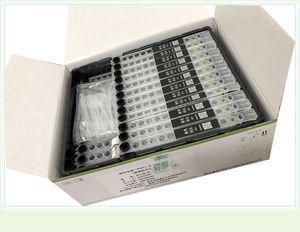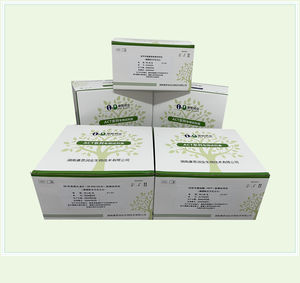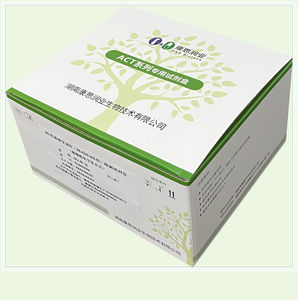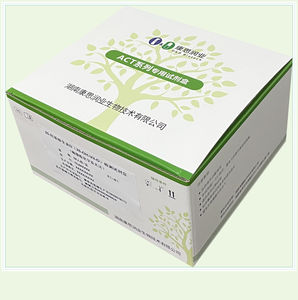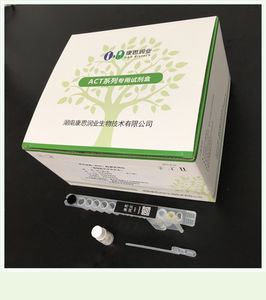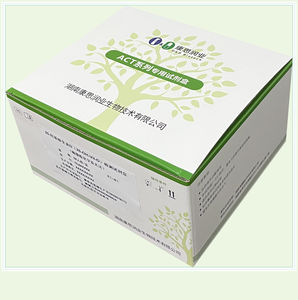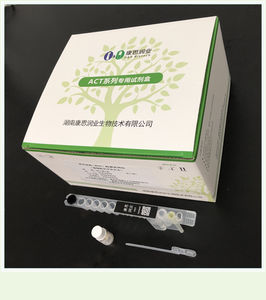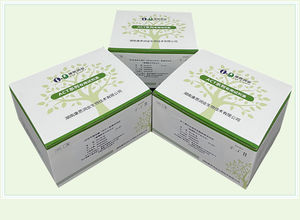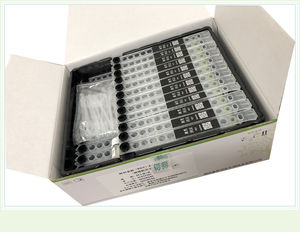
- Laboratory
- Laboratory medicine
- Cardiovascular disease test kit
- Beijing O&D Biotech Co., Ltd.

- Company
- Products
- Catalogs
- News & Trends
- Exhibitions
Cardiovascular disease test kit 0009HCD-dimerplasmawhole blood
Add to favorites
Compare this product
Characteristics
- Applications
- for cardiovascular diseases
- Tested parameter
- D-dimer
- Sample type
- plasma, whole blood
- Analysis mode
- CLIA
- Format
- strip
- Other characteristics
- digital
Description
Product Name: D-dimer detection kit (Magnetic Solid Phase Chemiluminescent Immunoassay)
Packaging: 24 T/KIT
Intended Use:
This product is used for the in vitro quantification of D-Dimer in human plasma and whole blood. D-Dimer is a specific marker of the fibrinolytic process that is produced by cross-linking of fibrin monomers by activator XIII and then hydrolysis by fibrinolytic enzymes.
The fibrinolytic system is the most important anticoagulant system in the body and consists of four major components: fibrinogen, fibrinogen activator, fibrinolytic enzymes, and fibrinase inhibitors. When fibrin clots are formed, fibrinogen activation is converted into fibrinolytic enzymes in the presence of fibrinogen activator, and the fibrinolytic process begins. Both X-oligomers and D-dimers contain D-dimer units.
D-dimer mainly reflects fibrinolytic function. Increased or positive D-dimer is seen in secondary hyperfibrinolytic conditions such as hypercoagulability, diffuse intravascular coagulation, renal disease, organ transplant rejection, and thrombolytic therapy. Whenever there is activated thrombus formation and fibrinolytic activity in the body's blood vessels, D-dimer will be elevated. Myocardial infarction, cerebral infarction, pulmonary embolism, venous thrombosis, surgery, tumors, diffuse intravascular coagulation, infection, and tissue necrosis can all lead to elevated D-dimer. Especially in the elderly and inpatients, the disease such as bacteraemia may cause abnormal coagulation and lead to elevated D-dimer.
Catalogs
No catalogs are available for this product.
See all of Beijing O&D Biotech Co., Ltd.‘s catalogsOther Beijing O&D Biotech Co., Ltd. products
Chemiluminescence Immunoassay (CLIA) Test Kit
Related Searches
- Assay kit
- Blood assay kit
- Serum assay kit
- Immunoassay assay kit
- Plasma assay kit
- Infectious disease detection kit
- Rapid lateral flow test
- Cassette rapid diagnostic test
- Whole blood detection kit
- Respiratory infection test kit
- Rapid virus test
- Cassette assay kit
- Lateral flow test kit
- COVID-19 assay kit
- Rapid respiratory infection test
- Antigen assay kit
- Strip detection kit
- COVID-19 rapid diagnostic test
- Urine assay kit
- Nasopharyngeal assay kit
*Prices are pre-tax. They exclude delivery charges and customs duties and do not include additional charges for installation or activation options. Prices are indicative only and may vary by country, with changes to the cost of raw materials and exchange rates.


